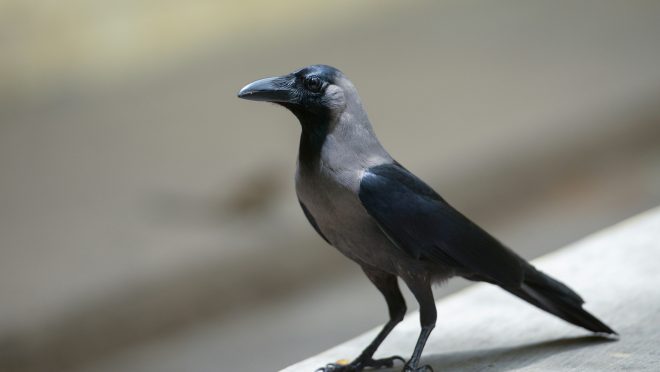Crows are unforgiving! They can hold grudges for up to 17 years
Crows are unforgiving! They can hold grudges for up to 17 years

Crows are highly intelligent birds with sharp memory. They remember those who wrong them and can stay angry at them for a long time.
Crows can hold grudges for extended periods.
Do you forgive and forget quickly? Or do you hold onto small grievances for decades? If you fall into the latter category, you might have something in common with crows.
Research shows that these highly intelligent birds can remember any threats or disturbances for up to 17 years and hold a grudge against the source.
So, if a crow suddenly attacks you or starts cawing loudly at the sight of you, think back—did you do something in the past two decades to bother that crow or one of its friends or relatives?
According to researchers, crows are either incapable of forgiveness or unwilling to forgive. Instead, their intelligence and excellent memory allow them to identify those who have wronged them and harass them for a long time. In some cases, this behavior persists so long that some city residents have begun documenting incidents of crow attacks.
Researchers have discovered how long a crow can hold a grudge. Alexander Pope once wrote, “To err is human; to forgive, divine.” But, borrowing from William Congreve, one might say, “Hell hath no fury like a crow scorned.”
In 2006, John Marzluff, an environmental scientist at the University of Washington, discovered this after putting a group of crows through an uncomfortable situation.
He wore a monster mask while capturing seven crows with a net and tagging them with identification bands. Although the process was quick, Professor Marzluff reported that the experience was frightening for both the captured crows and those that witnessed the event.
For several years afterward, Professor Marzluff and his assistants occasionally walked around campus wearing the same unsettling mask to observe if local crows reacted aggressively or cawed angrily at them.
On one occasion, as he walked past 53 crows, 47 of them scolded him. Interestingly, this number exceeded the crows present during the original incident.
This observation suggests that crows learn to recognize threatening human faces from their parents, relatives, and flock members. This demonstrates that even though the average lifespan of a crow’s flock member is less than a decade, they can hold onto grudges for much longer and pass this resentment on to future generations.
However, researchers noted that the most aggressive cawing from angry crows occurred around the seventh year. After 2013, such aggressive calls gradually declined. Finally, one day last September, for the first time in 17 years, Professor Marzluff walked without hearing any scolding or aggressive caws. He is now preparing to publish his research findings.
At the start of the study, the researchers also used a mask modeled after then-U.S. Vice President Dick Cheney’s face. Those who wore the Cheney mask around the crows were not attacked and could feed them freely. Later, when the same mask was worn again, the crows neither attacked nor cawed aggressively at the wearer.
Another experiment was conducted in Seattle, where students wore different masks to catch crows. Volunteers were then given either a neutral mask or the previous mask used to catch the crows, but they were unaware which mask was considered dangerous.
Bill Pochmarski, a volunteer who wore the dangerous mask, described the experience to The New York Times, saying, “The crows were cawing intensely that day. They kept screaming nonstop, and it was clear they weren’t upset about something ordinary. They were angry at me.”


